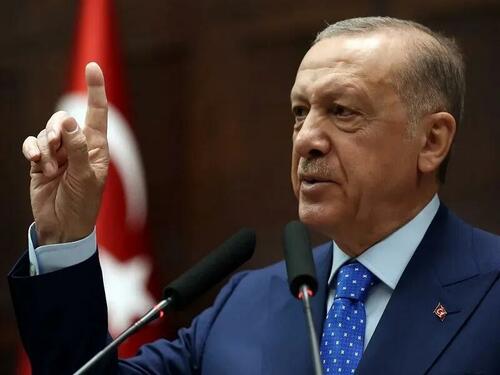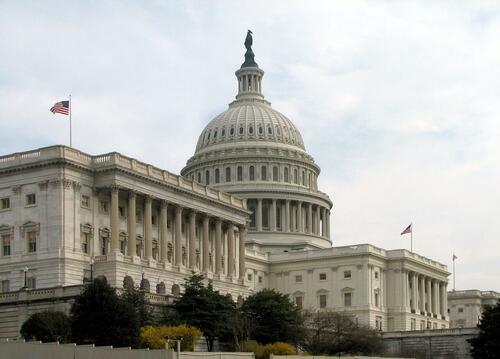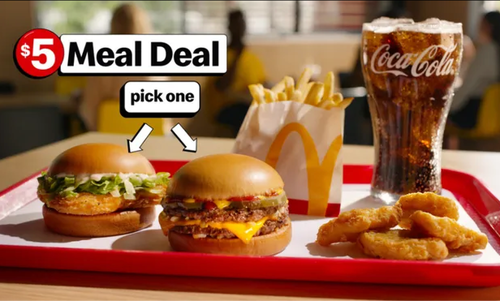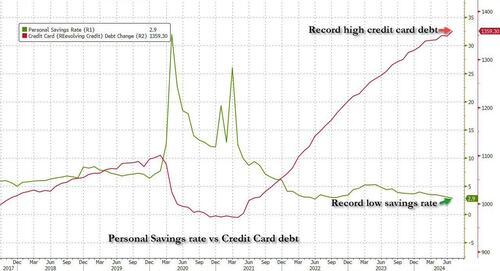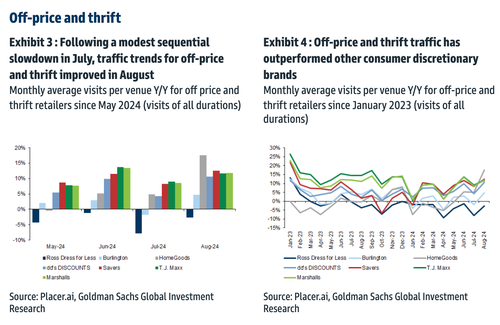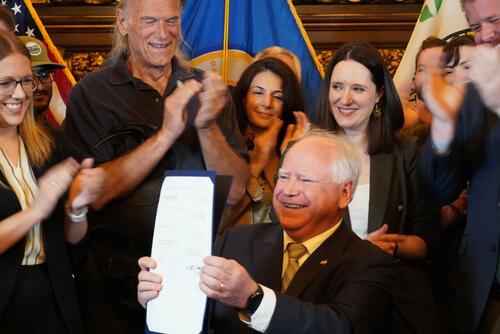Uzbekistan Leverages Russia’s Need For Allies, Secures Discounted Gas
Via Eurasianet.org,
-
Russian Prime Minister Mikhail Mishustin’s visit to Uzbekistan aimed to strengthen ties and promote Uzbekistan’s membership in the Eurasian Economic Union (EAEU).
-
Uzbekistan maintained a cautious stance, prioritizing its strategic partnership with Russia but avoiding commitments on EAEU membership or specific joint projects.
-
The visit resulted in minor agreements on rail transport, medicinal product labeling, and medical personnel training, with a protocol signed for the construction of nuclear reactors in Uzbekistan.
Russian Prime Minister Mikhail Mishustin’s two-day visit to Uzbekistan highlights the limits of the Kremlin’s geopolitical leverage these days. Mishustin arrived with high hopes of drawing Uzbekistan closer into Russia’s orbit, but he left with little of substance.
Uzbekistan and other Central Asian states have walked a fine line since Russia launched its invasion of Ukraine in early 2022, striving to remain on the sidelines of the conflict without riling the Kremlin and provoking Russian leader Vladimir Putin into taking some sort of punitive action. Helping to keep Moscow happy is the fact that Central Asian states have acted as a backdoor trade conduit, tacitly helping Russian leaders soften the impact of Western sanctions, and keeping the Russian war effort going.
Mishustin arrived in Uzbekistan on September 9 with a declared aim of securing Tashkent’s commitment to becoming a full member of the Moscow-dominated Eurasian Economic Union (EAEU). “Uzbekistan’s participation in Eurasian integration can give additional advantages for business. First of all, thanks to the opening of new sales markets, the creation of conditions for fair competition,” the TASS news agency quoted Mishustin as saying during a September 9 meeting of the joint Russian-Uzbek governmental commission.
And unnamed experts cited by the Russia-based URA news agency said the main reason Moscow wants Uzbekistan to join EAEU boils down to population numbers: Russia is facing a demographic disaster exacerbated by already large, and constantly rising, wartime losses. Uzbekistan, meanwhile, has a young and rapidly growing population. Russia needs more bodies to ensure a stable economic future.
“Russia is interested in Uzbekistan’s accession to the EAEU because it is a country with a population of 35 million, and according to forecasts, by 2035 it will already have more than 40 million inhabitants,” URA quoted the expert as saying.
“The total population of the [Eurasian economic] union would exceed 200 million people [if Uzbekistan became a member]. For Russia, this is an opportunity to strengthen the combined weight of that side of the multipolar world that is being built around our country as a regional leader.”
At the joint commission meeting, Mishustin also expressed hope that the two countries could develop a venture to produce drones for “civilian” uses.
“We are exploring the possibilities of organizing the high-tech production of polymers, localizing the production of civilian unmanned aircraft systems and their components,” TASS quoted Mishustin as saying.
The suggestion raised eyebrows among some local observers, given that an entity in Kazakhstan has already come under US sanctions for supplying Russia with dual-use components, including parts for drones used against Ukrainian forces.
Uzbek officials appeared to listen politely to Russian proposals, but provided no indication that they would go along with Moscow’s wishes. A statement issued by President Shavkat Mirziyoyev’s office following a September 10 meeting with the Russian prime minister offered the usual platitudes on the importance of the bilateral “strategic partnership” without mentioning the EAEU or specific joint projects. About the most specific the presidential statement got was an acknowledgement that “an exchange of views occurred on issues of mutual interest.”
The joint commission’s outcome the previous day was similarly modest. There was lots of discussion about boosting trade and investment and following up on joint projects agreed upon during Putin’s visit to Uzbekistan last May. But the talks produced few results.
An Uzbek government statement noted that three relatively minor agreements were signed at the conclusion of the commission session, including one on accelerating the rail transport of agricultural products and another covering standardized labeling of medicinal products. The third item was a protocol on the training of medical personnel.
Perhaps the most significant development arising out of the visit was the signing of a protocol concerning implementation of an agreement signed back in May under which Russia pledged to build up to six low-power nuclear reactors to generate electricity in Uzbekistan. The protocol “will allow us to begin direct work on the construction site in the near future,” a report published by the Spot.uz new outlet quoted Otabek Amanov, a top Uzbek official overseeing the project, as saying. Uzbek officials say they hope the first reactor will be ready to go online within five years.
During the commission meeting, Mishustin expressed satisfaction with bilateral energy cooperation. “Our energy partnership is progressing successfully. Including the supply of natural gas, oil, and petroleum products from Russia to Uzbekistan,” Mishustin stated.
Uzbek officials have no reason to argue on that point. Uzbekistan is buying up Russian natural gas at a bargain-basement rate of $160 per thousand cubic meters (tcm), according to local media reports. By comparison, the Russian energy behemoth Gazprom sold China gas at an estimated rate of just over $286/tcm in 2023. The low purchase price of Russian gas helps explain why Uzbekistan, itself rich in gas reserves, has turned into a net importer of the blue fuel. Low-cost Russian supplies are enabling Uzbek leaders to offer domestic customers highly subsidized rates for gas consumption.
Tyler Durden
Fri, 09/13/2024 – 05:00
via ZeroHedge News https://ift.tt/MOnhN1A Tyler Durden




